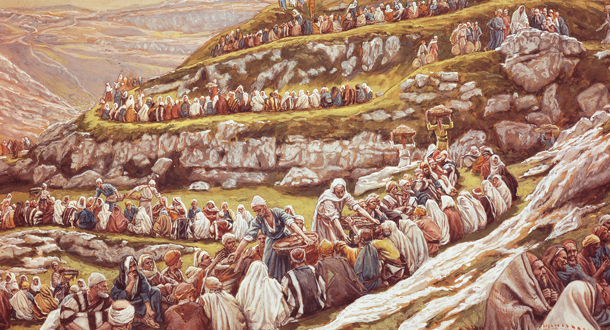
Scripture:
Reflection:
We are being treated this week to stories from the book of Genesis. We have so many elements to reflect upon in our readings today. Scripture scholars offer that the final chapters of Genesis may have been written during the captivity of the Israelites in Babylon, sometime between 587 and 538 B.C. Accordingly, their primeval history was written as they tried to figure out life and death; as well as labor pains and how they might have ended up in captivity. Yet, in their wonderings, they never doubted the compassion of God.
In today’s text, blame enters our world with Adam assigning blame to God for the woman he (God) gave him. Eve on her part realizes that she was tricked by the serpent. However, one common item that stands out between both readings, is the idea of pity or compassion. The word for pity or compassion in Greek is Splanchizomai. Deeper meaning can be understood as translating to “from the depths of his being or even, “womb.” This explanation is so much deeper and richer than pity or compassion as we understand the words.
We hear, “For the man and his wife, the Lord God made leather garments, with which he clothed them.” I have always loved this verse because it speaks to me of compassion and action. Further, it reminds me that God desires to cover our shame with his love. He desires real healing for us to live shame-free regardless of our actions. It also brings to mind many childhood memories of watching my mother making garments. She loved to sew and placed so much care and attention on her work. Today, I read this verse through that lens of the loving tenderness of my mother.
Our Gospel from Mark offers us the story of the second feeding of the multitudes, the first coming in chapter 6: 34-44. This one is believed to be food for the Gentiles. We are now situated in the middle of the Gospel where soon we will hear Peter’s declaration of Jesus as the Messiah (8:29).
Pope Francis has said, “If we put what little we have into the hands of Jesus in order to share with others, it will become an overabundant richness.” I do not think I can add to his words except to say that it is not just our food we are called to share although, that is helpful. Perhaps we can imagine that Jesus feels deep compassion for those in need of help in our world, today. What I read in this Good News is that each of us has a part to play in making miracles happen. We simply should not assume that seven loaves and a few fish cannot feed thousands abundantly with leftovers. We are called to do what we can.
Another element that I see in the text is the idea of waiting for Jesus to act. “Taking the seven loaves he gave thanks, broke them, and gave them to the disciples to distribute.” We often find ourselves impatient as we wait on Jesus to act and attempt to take matters into our own hands…and out of his hands. Finally, if our hands are already full, how can we be of help to Jesus?
Like the psalm says, “In every age, O Lord, you have been our refuge.” May we always know that God is indeed our refuge, especially in these times of uncertainty. Amen
Jean Bowler is a retreatant at Mater Dolorosa Passionist Retreat Center in Sierra Madre, California, and a member of the Office of Mission Effectiveness Board of Holy Cross Province.
